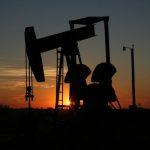March 12, 2020: A recent waste crude oil spillage, after recent heavy rain spell, in the Nirali Dam of Gujar Khan has posed a serious threat to human health and the environment in the vicinity.
Assistant Director Punjab Environment Protection Department (EPD) Amin Baig has said that the crude oil leakage occurred in the Adhi Oil field of Pakistan Petroleum Limited (PPL).
“After reports of the oil flow over into the reservoir, the EPD team visited the site and took the PPL administration on board whereas DO Fisheries Muratab Ali also accompanied the team. Water samples have been collected from the banks of the dam and also from the middle of the water reservoir to ascertain the level of oil contamination in the reservoir,” he added.
He noted that the water color and shining surface in the center of the dam indicated the presence of crude oil.
He informed that the water samples were sent to the laboratory in Lahore to gauge the level of pollution in the dam.
Amin added that the dam water was used for irrigation and fish farming purposes and was not used for drinking.
“The oil overflow into the dam was first identified by the Irrigation Department where after meticulous observation of the water reserve proved the presence of oil,” he noted.
To a question, he said Well No.5 at the Oil field was suspected to be the oil leaking sources where we had collected random samples from the final outlet of the oil field and then the dam.
According to the Safe Drinking Water Foundation (SDWF), a Canadian charity working on the subject since January 1998 claimed that oil pollution could damage ecosystems, including plants and animals, and contaminate water for drinking and other purposes.
“The feathers and fur of birds and marine animals can become coated in oil; when the animals are covered in oil, they can no longer insulate themselves against the cold water, and birds have difficulty in flying. Furthermore, when the animals clean themselves, they ingest some of the oil. Most birds that are coated in oil would not survive if it weren’t for people cleaning them. Fish can be suffocated by the thick sludge of oil on the water surface, and bottom-dwelling fish can develop liver disease, as well as reproductive and growth problems. Plants that grow in or near the water can be harmed by oil pollution. An oil spill can block the sunlight that plants need for photosynthesis, which kills plants growing in the water,” it added.
SDWF underscored that oil pollution could also affect fishing and hunting, which was especially detrimental for people who rely on hunting and fishing, such as many rural communities. Water sources that are intended to provide drinking water can become contaminated.
It merits mention that PPL had given the contract to clean oil pollution to an international company which was carrying out its operations on the site.





